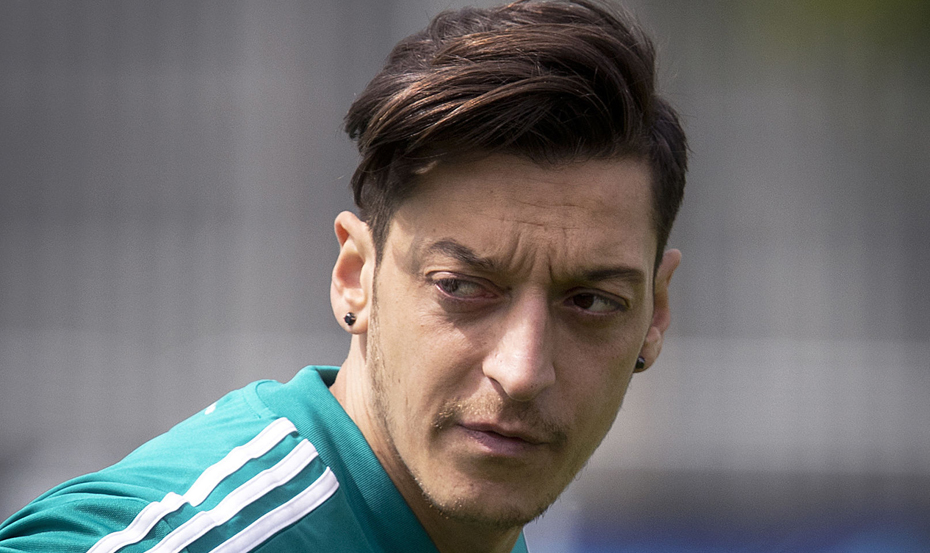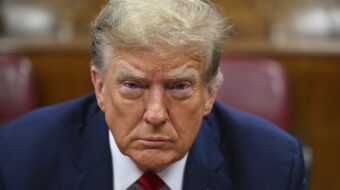
I got back recently from a two-week vacation in Berlin, Germany, a city where I have friends, relatives and political comrades. When I got there the weather was perfect (and it remained so for the entire time I was there). The good weather, soccer and the games in Moscow were on the minds of people, millions of whom in Germany had expected the warmth of the Berlin summer and a victory for their national soccer team to combine for a wonderful time for all. The weather in Berlin is not always reliably good but a team victory, like the one in Rio in 2014, was surely much more certain.
But first, some geography: A huge and beautiful park (the Tiergarten) sits in the center of Berlin just on the western side of where the wall had been – the wall that had surrounded West Berlin. Many don’t realize it but the wall surrounded West Berlin, the entirety of which sat in the middle of the former socialist German Democratic Republic (East Germany.) They think somehow that the East Germans were the ones “behind” the wall when the opposite was true.
The Tiergarten is dissected by a broad boulevard that runs from the Brandenburg Gate to a tall tower at the other end. Giant screens were positioned in the vast space so the expected crowds could cheer on to victory every step the team made towards that expected outcome. Surely it would be Rio 2014 all over again with the Germans bringing home the trophy.
Some 100,000 of the fans then jammed that broad avenue in the Tiergarten to watch on the big screens and to celebrate. The carnival and happy atmosphere extended all over the city. The S-Bahn station in Berlin’s Charlottenburg neighborhood, where I stayed, had a greater-than-life-sized poster of Mesut Ozil, recognized by everyone as one of the best players on the German team. “Germany loves you, we wish you well,” said the message on the poster.
Sadly, it all wasn’t meant to be. In three games the German team failed to even make the quarter finals. For the soccer fans and for the people it was bitter disappointment. The boulevard remained almost empty for days. No matter that it was soccer, loved by everyone in Europe. No reason to turn out when there were no Germans playing. Who wanted to watch Brits, Frenchmen or Croatians? Very few.
For some Germans it was practically tragedy.
But there is always someone waiting to take tragedy and bring it to another place. In this case it was Germany’s right wing politicians.
They quickly found their scapegoat. It was Mesut Ozil, who only days before had been lauded as one of the best players. Even though he couldn’t pull his team to victory Ozil himself played well in all three games while the German team was still alive.
The right wing, in the person of an international player, had actually intervened in German soccer well before the games, well before home grown German right wingers got involved and unfortunately Ozil had allowed himself to be used by one of those notorious international actors. He got himself hooked up with Recep Tayyip Erdogan, the right-wing despot ruling Turkey, the country of Ozil’s ancestors.
Earlier in the year Ozil and another player with Turkish background, both of them born in Germany, had appeared on television in the United Kingdom in a smiling photo-op arranged by Erdogan. Erdogan had arranged the photo shoot so he could use it to boost the vote for himself in the recent Turkish elections. Many German citizens living in Germany hold dual citizenship and can vote in Turkish elections. What better way, Erdogan figured, to sew up that vote than to be seen palling around with famous German soccer players of Turkish background?
When Erdogan approached Ozil he was flattered. As far as Ozil was concerned he wanted to make it clear that although he was German he was not ashamed of his Turkish roots and that he had an attachment to the country of his ancestors. Little did he expect that it was only a matter of time that despite Erdogan’s right-wing credentials, those photos would be used against him by the German right wing. And so it unfolded.
After the rout of the team a vicious campaign was unleashed against Ozil in the German press. They ignored the fact that he was second in the number of shots at the goal and second best player in the lost games. The media egged on fans, urging them to turn thumbs down on Ozil.
One headline in a popular tabloid had a picture of Ozil with a headline over it: “German Downfall.”
Another tabloid described the German soccer players as consisting of “23 team members and two Turks.”
What appeared on social media was even worse and there was no visible defense of Ozil by any of Germany’s top soccer officials. In fact, some even joined in on the attacks.
At first there was silence from Ozil. Then, however, he broke the silence. He issued a statement that he was quitting the team.
He said that when the team wins he is “a good German player” but when it loses he is “the Turk” and takes the blame.
So now Ozil lost and the German people lost. The big winner here, however, lurking behind the scenes and the leader of the anti-foreigner mob in Germany, was the Alternative for Germany (AfD). Under its banner last year 92 Nazi deputies took their seats in the German Parliament. It was the first time since 1945 that Nazis entered a post war German parliament.
The AfD is far from being a majority party in Germany but they are now competing with the Social Democrats in the polls. The SPD, for many years Germany’s biggest party, has dropped to 17-19 percent. The AfD is between 13-17 percent.
It’s 13 to 17 percent too much as far as decent Germans are concerned. The growing AfD vote should worry everyone in Germany and in America too. Hitler had even a smaller vote during his early campaigns. As Americans we need to remember how he started out in Germany all those years ago.
He railed against “foreigners” and he promised to “make Germany Great again.”
Sound familiar?












Comments